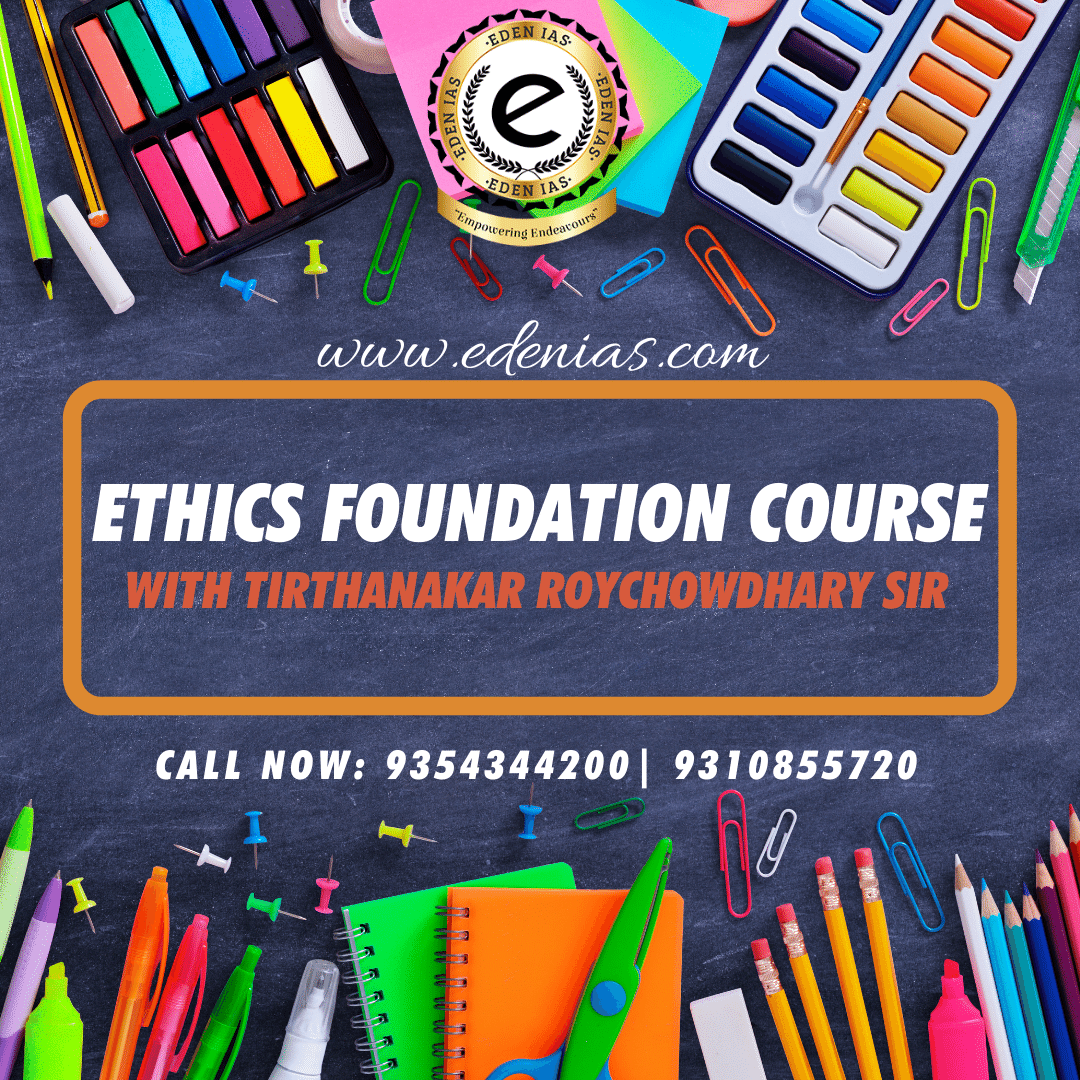Ethics Integrity and Aptitude is about the being consistent in your thinking and the actions you suggest, which must conform to what is generally accepted as right, good or noble.
The subject covers elements from three broad fields: Public Administration, Philosophy and Psychology.
The Ethics Integrity and Aptitude paper is composed of two sections Part A which includes Theory as well as Part B which is Application with the help of cases studies. Thus, prepare for ethical conduct in two stages:
PHASE I-THEORY | Ethics Integrity and Aptitude
- Begin by tackling a particular subject.Study the syllabus of that area and then develop a solid conceptual knowledge of the concepts and terms. In order to do this, it’s recommended to refer to the notes of your class instead of any other book.
- When you are covering the subject be sure to pay attention to examples. An example that is well-executed can add significant worth to your knowledge and also to your answers. Anytime you can find a useful example, take it in your notebook to refer to it later when you need.
- Add to your notes in class with more reliable, trustworthy documents such as the Fourth Report. from the 2nd ARC Patrick Sheeran’s book, the Nolan Committee etc.
(I personally do not recommend any of the books on the market. As the majority of them are just collections of articles pulled on the internet. They lack clarity, aren’t organized and, in the most extreme of instances, may be conceptually incorrect).
- This way, you can be sure to cover all three aspects.This guarantees a thorough coverage of the theoretical component.
- Once you’ve completed the theoretical portion, review the paper immediately.This will allow you to recognize and establish inter-linkages between diverse domains.e.g. from a philosophical point of view, Plato says that “the punishment for those who don’t participate in the govt. is to endure the government. of”bad men”.
In public administration this is the reason why we emphasize the importance of participation in governance, self-governance and citizen-centric administration, etc.
From a psychological point of view from a psychological perspective, this is called an democratic mindset.
- Make a compendium for quick revision prior to the test.It should contain:
- I) Definitions of the most important concepts and the underlying values.Make sure to provide concise and relevant examples for each.
- ii) A list of Thinkers/Philosophers, with their important contributions and quotations briefly noted down.
- II) The following list contains notable persons (Gandhi, Lincoln, Kalam and so on.). with stories from their lives.It will be great material to illustrate a point.
- IV) A few good personal qualities you have, as well as an overview of the ways you have used them successfully.
Phase II – CASE STUDIES
- Start by obtaining a compilation of unsolved and solved cases research.
(Being someone who is an insider I’d highly recommend this book: Eden Yellow Book to Study Case Studies).
- Then, you should go through some SOLVED case research.
Take a look at the entire case But don’t read the solution.
Write down a few things which you believe you’d include in your response.
Then, read the answer to the model and compare your ideas with it.
Consider areas that could be improved e.g. what additional points can be added. relevant examples/quotations/terms, choice of words in presenting the answer etc.
- In this way, you can you should go through about 15 solved cases.Your focus shouldn’t be on providing an answer. Instead, the focus is to figure out how you can diversify and enhance the answer you are giving.
- After having completed the case studies solved Take a look at not solved cases and write the FULL answers. This will help you develop how to present your ideas, and also time management.
Their Answer Writing Program will help to make sure its word count. It reaches a specific requirement or stays within a certain limit.
All the Best and Good Luck to all the Aspirants who are attempting UPSC CSE this Year.
